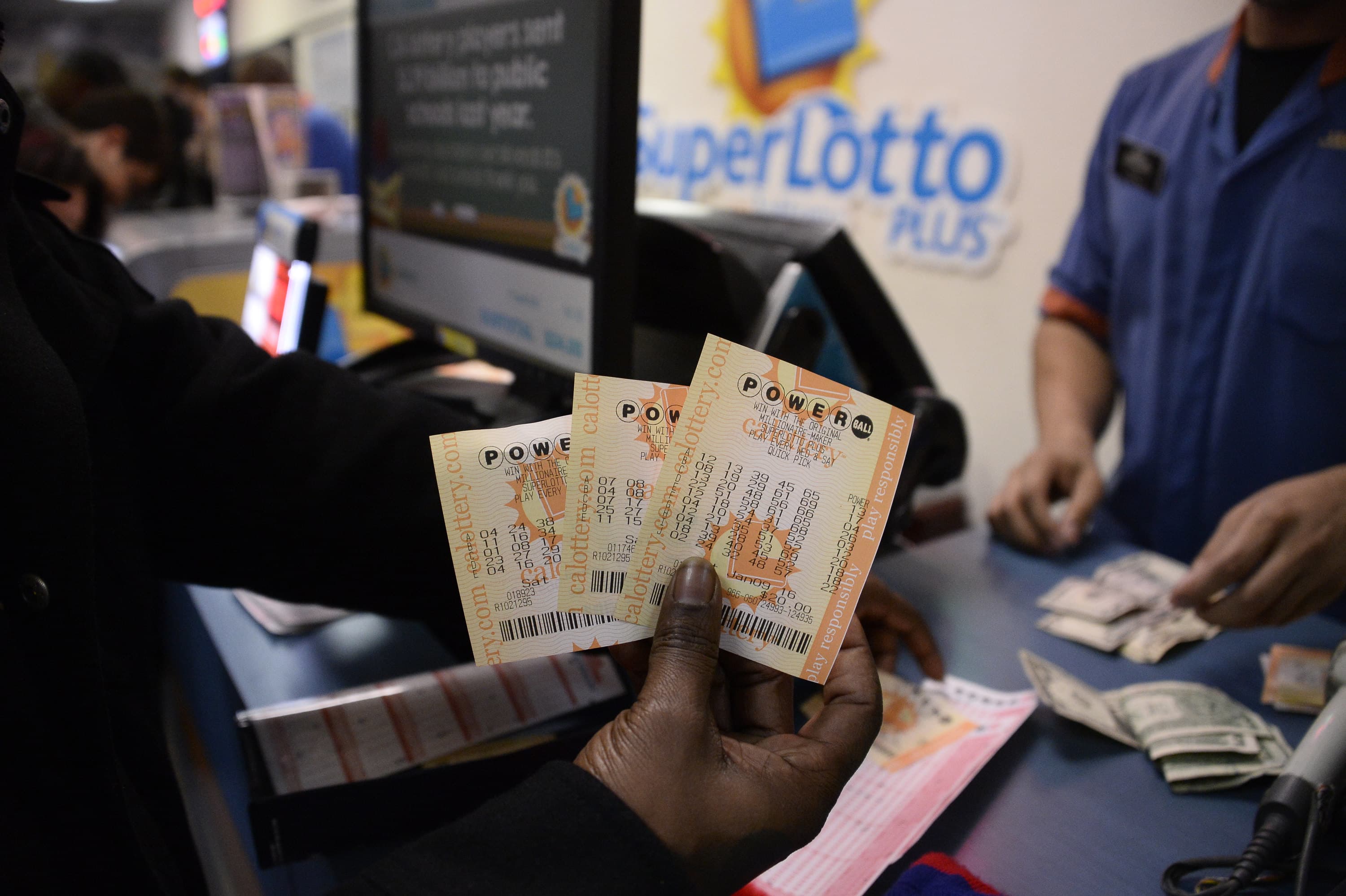
A customer shows their tickets for the Powerball lottery at the CA lotto store in San Bernardino County, California on the California-Nevada state line.
Gene Blevins | Reuters
Yet again, the Powerball jackpot has jumped higher.
The top prize is now $730 million — the six-largest in lottery history — following no ticket matching all numbers drawn Saturday night. And Mega Millions’ jackpot, at $850 million, is the third-largest jackpot ever. The next drawings are set for Tuesday (Mega Millions) and Wednesday (Powerball).
The odds of winning either game aren’t in your favor: The chance of a single ticket matching all six numbers is 1 in 302 million for Mega Millions and 1 in 292 million for Powerball.
Nevertheless, it’s still worth considering how you’d handle such a windfall if you were to beat the odds.
Jackpot winners usually get six months to a year to claim their prize, depending on the state where it was purchased. This generally means that rushing to lottery headquarters isn’t necessary.
In other words, winners should take a deep breath.
Big money equals big emotions
Whoever ends up hitting either jackpot should be prepared for a rollercoaster of emotions.
Experts say that once the initial excitement of winning the jackpot wears off, the magnitude of their windfall can settle in.
“For anyone experiencing newly created wealth … there are feelings of dislocation and a sense of being overwhelmed,” said Valerie Galinskaya, a managing director and head of the Merrill Center for Family Wealth.
For anyone experiencing newly created wealth … there are feelings of dislocation and a sense of being overwhelmed.
Valerie Galinskaya
Head of the Merrill Center for Family Wealth
Of course, you don’t have to go it alone.
Given the sheer size of these jackpots, winners should assemble a team of experienced professionals — including an attorney, CPA and financial advisor — to help them navigate the windfall.
“You want to hire the right advisors who can provide not just good advice, but advice that’s tailored to your needs and wants,” Galinskaya said.
Protect your ticket and identity
You should make a copy of your ticket, put it in a safe place — i.e., a lockbox or safe deposit at a bank — and resist the urge to share your news with everyone in your life.
“Don’t blab to people about it right away, except for your immediate and trusted family,” said certified financial planner Jim Shagawat, a New Jersey-based partner advisor with AdvicePeriod of Los Angeles.
Additionally, you should shield your identity when you claim the jackpot, if possible. While the standard advice is to sign the back of the ticket, this could interfere with remaining anonymous if state laws let you create a trust or limited liability corporation to claim the windfall instead of doing so in your own name.
More from Personal Finance:
IRS delays start of tax filing season to Feb. 12
Attacking holiday debt: These 8 strategies can help
How to get out of vacation timeshares amid pandemic
If your state laws require your name to be publicly announced, it’s worth preparing how to respond if others bring up your windfall in conversation, Galinskaya said.
“You say ‘I’m really grateful, and we’re still working through what it means for us,'” she said.
Prepare for the tax bill
For the $850 million Mega Millions jackpot, the cash option — which most winners choose instead of an annuity — is $628.2 million.
Before the money gets to you, however, 24% — or $150.8 million — will be withheld for federal taxes. You also could count on owing a lot more to Uncle Sam due to the highest marginal rate of 37% applying to income above $523,600 for individual tax filers and $628,300 for married couples filing jointly. State taxes also are typically due.
For Powerball’s $730 million jackpot, the lump sum option is $546 million. The 24% withholding would be about $131 million. And, again, more would be due.
Think philanthropically
One way to reduce your tax bill is to think charitably. Basically, the government gives you a tax break if you use private money to do public good.
“It’s not only about what you want to do for yourself and your family, but also philanthropically,” Galinskaya said.
You can contribute cash, up to 60% of your adjusted gross income, to a public charity or a donor-advised fund and get a tax deduction for the amount in the year you make the donation. You also could create a private foundation, donate income to it and then determine over time how to employ it.


